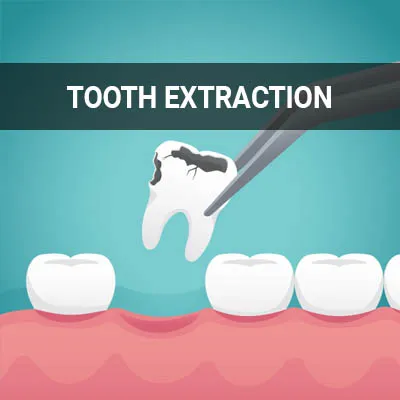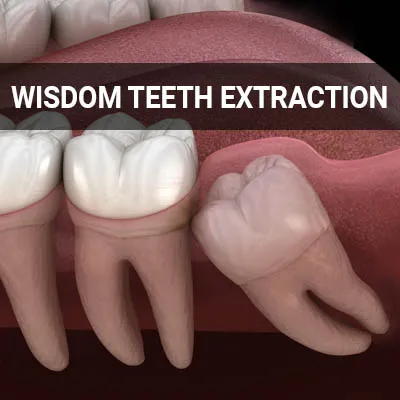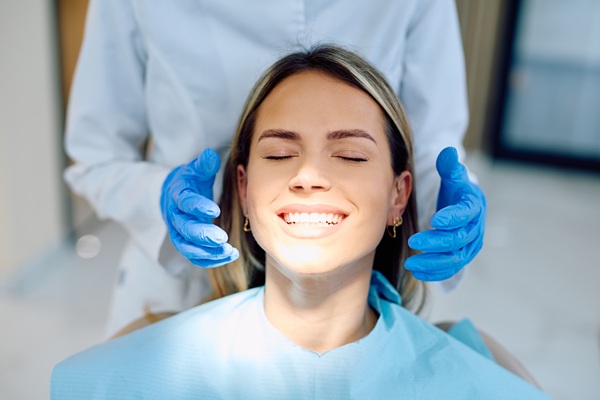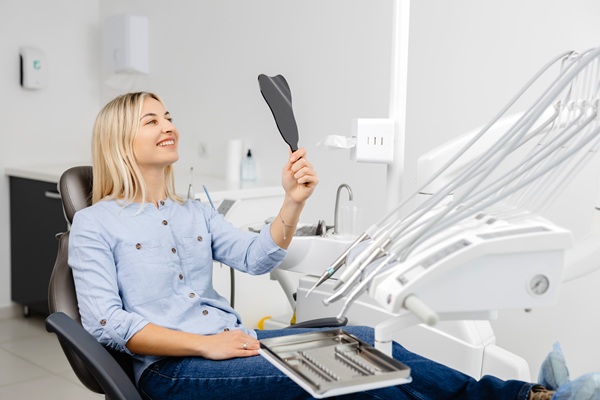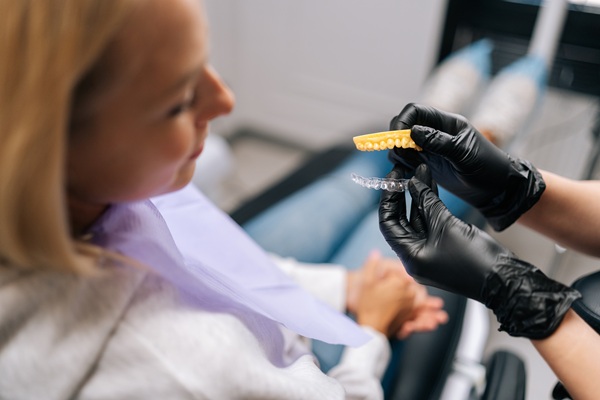Oral Surgery New York, NY
Oral surgery can address several different dental issues that have persisted over time. This solution may be able to address any jaw, bone, or teeth irregularities. If you have chronic dental problems that have not responded to non-invasive treatment, oral surgery may be right for you.
Oral surgery is available at Uptown Dental Group in New York and the surrounding area. For many patients, oral surgery is the solution they need after other dental treatments have failed. Call us today at (646) 666-0757 to learn more and schedule an appointment.
Understanding Oral Surgery
As recognized by the American Dental Association, oral and maxillofacial surgery deals with diagnosing and treating diseases, injuries, and defects involving the hard and soft tissues of the oral and maxillofacial region. "Oral" refers to the mouth, and "maxillofacial" refers to the jaw and face. Since the field may address both aesthetic and functional areas of these regions, there are many different types of oral and maxillofacial surgeries. Oral surgery is a long-established and well-researched area of study that is safe when conducted by a qualified professional.
“Because the field may address both aesthetic and functional areas of these regions, there are many different types of oral and maxillofacial surgeries.”
Reasons for Oral Surgery
Oral surgery may help with several conditions. Some of the most common include:
- Tooth Loss. Losing natural teeth can erode the jawbone over time, making deterioration an inevitability. Dental implants can prevent this from happening by anchoring the false teeth to the jawbone and stabilizing them.
- Impacted Teeth. Teeth are "impacted" when they become trapped between the jawbone and the gum tissue. Usually, this happens because the tooth has not emerged in proper alignment or entirely through the gumline. Generally, dentists will recommend patients have these removed.
- Orthodontics. Oral surgery is sometimes necessary when braces are not enough to correct malocclusion (a misaligned bite). In such cases, a dental professional works with a surgeon to build a personalized treatment plan for the patient's orthognathic surgery (corrective jaw surgery).
It is important to remember that the above list is not exhaustive. Patients should consult with a professional to ensure which treatment option is right for them.
“Oral surgery may help with several conditions.”
Preparing For Oral Surgery
We highly encourage patients to address all questions and concerns they have about their surgery during the consultation. It is important to understand all of the implications that go into any surgery and be prepared well ahead of time. No matter the type of surgery, we will inform the patient of their procedure type, discuss instructions prior to and during the procedure, and relay any crucial information they need to know before the surgery.
In general, surgical procedures involve a form of sedation, which will require the patient to fast from midnight the night before their surgery. Fasting prevents aspiration, a rare complication in which contents of the stomach fill the lungs. Patients receiving sedation will also need a ride to and from our office as the anesthetic can impair their consciousness. We also recommend that patients wear a short-sleeved shirt to allow for easy access to the veins and to help us monitor their blood pressure during surgery. Any additional instructions will be given on a case-by-case basis.
“In general, surgical procedures involve a form of sedation, which will require the patient to fast from midnight the night before their surgery.”
Check out what others are saying about our dental services on Yelp: Oral Surgery in New York, NY
Surgery Procedure
On the day of surgery, we advise patients to arrive early to complete any necessary paperwork. It also allows them to stay calm and relaxed before their surgery, keeping their heart rate and blood pressure steady. The duration of surgery depends largely on the condition, severity, and current oral health status. We will discuss the length of time before the surgery.
Once the patient has checked in and is ready for treatment, we will inject the anesthetic, which will be local or general anesthesia or nitrous oxide. An IV may be required for some patients to keep their vitals up during surgery. Once the patient is numb, we will begin the procedure. Each procedure varies, but the patient will have a good understanding of what their procedure will entail before coming in on the big day.
“The duration of surgery depends largely on the condition, severity, and current oral health status, but the estimated length of time will be discussed with the patient before the day of surgery.”
Questions Answered on This Page
Q. How can I speed up my recovery from oral surgery?
Q. How can I prepare for oral surgery?
Q. What happens during the surgery procedure?
People Also Ask
Q. Do I need a tooth extraction?
Q. What is a dental implant procedure?
Q. What is the most durable option for replacing missing teeth?
Q. How do dental implants compare to dentures?
Recovering from Oral Surgery
Patients should plan to spend the day resting after oral surgery. The drowsiness of the sedative will likely last all day, making it important for patients to avoid doing anything that requires concentration. Patients should also refrain from straining to avoid dislodging any blood clots and causing bleeding. They should also keep their heads elevated whenever they are lying down.
Above all, it is crucial to follow the dentist's instructions for your individualized treatment plan. If you contract a fever, develop pus, or notice your swelling and bruising getting worse after three days, call our office right away.
“Patients should plan to spend the rest of the day resting after oral surgery.”
Frequently Asked Questions
Q. Is there open enrollment for oral surgery?
A. Oral surgery is included in many dental insurance plans. It is important to talk to your provider prior to booking the surgery in order to understand your benefits and what you may owe. Open enrollment for oral surgery differs from state to state, and the deadlines are posted on state government websites.
Q. What is "dry socket?"
A. Dry sockets are blood clots that often appear after extraction surgeries and usually go away on their own. In most cases, dry sockets result from inadequate hygiene practices, smoking, and overexertion during recovery. Symptoms include bad breath, foul odor and taste, and increased pain. Patients who experience dry socket for longer than three days should contact their doctor as soon as possible to schedule a follow-up.
Q. Is oral surgery painful?
A. Any type of oral surgery involves the use of anesthesia to keep patients comfortable and pain-free during the procedure. In most cases, the numbing agent lasts for at least an hour after the surgery and may last the remainder of the day, depending on the type of surgery and anesthetic used. However, after the numbing agent wears off, patients will likely feel pain in or around the surgical site and will be given pain relief medication and antibiotics to help with swelling and inflammation.
Q. What are the most common types of oral surgeries?
A. The single most common oral surgery is wisdom tooth extraction, with an estimated 10 million wisdom teeth extracted from approximately five million people in the United States each year. Other common oral surgeries include dental implants, bone grafting, corrective jaw surgery, and facial trauma surgery.
Q. When can I start eating and resuming my everyday activities?
A. In most cases, patients may resume eating as normal as soon as a week after surgery. Since each type of surgery is different, we may recommend patients eat certain foods and beverages for a shorter or longer period. Medications may also alter eating habits. This will all be discussed during the consultation appointment and reiterated after the surgery.
Oral Surgery Terminology
Learn More Today
Sometimes, only oral surgery can adequately address your dental issues. We at Uptown Dental Group may be able to help. Call us today at 646-666-0757 to learn more and schedule an appointment.
Helpful Related Links
- American Dental Association (ADA). Glossary of Dental Clinical Terms. 2025
- American Academy of Cosmetic Dentistry® (AACD). Home Page. 2025
- WebMD. WebMD’s Oral Care Guide. 2025
About our business, and website security
- Uptown Dental Group was established in 2014.
- We accept the following payment methods: American Express, Cash, Check, Discover, MasterCard, and Visa
- We serve patients from the following counties: New York County, Kings County, Westchester County, Bronx County, Richmond County, Queens County, Suffolk County, and Nassau County
- We serve patients from the following cities: New York, Manhattan, Jersey City, Brooklyn, Bronx, Queens, Staten Island, Long Island, West New York, and Westchester
- Norton Safe Web. View Details
- Trend Micro Site Safety Center. View Details
Back to top of Oral Surgery



